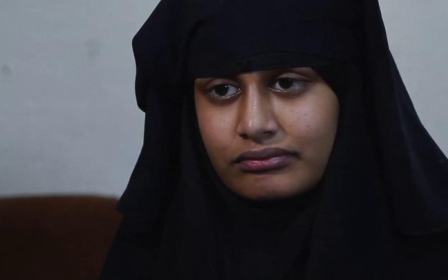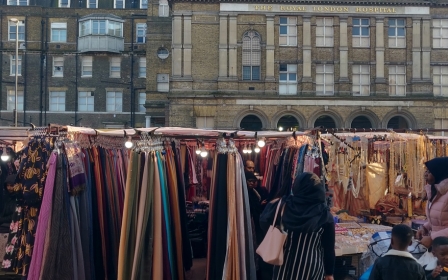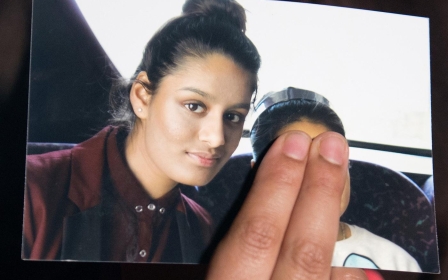Bangladesh will not allow Shamima Begum into country amid UK appeal
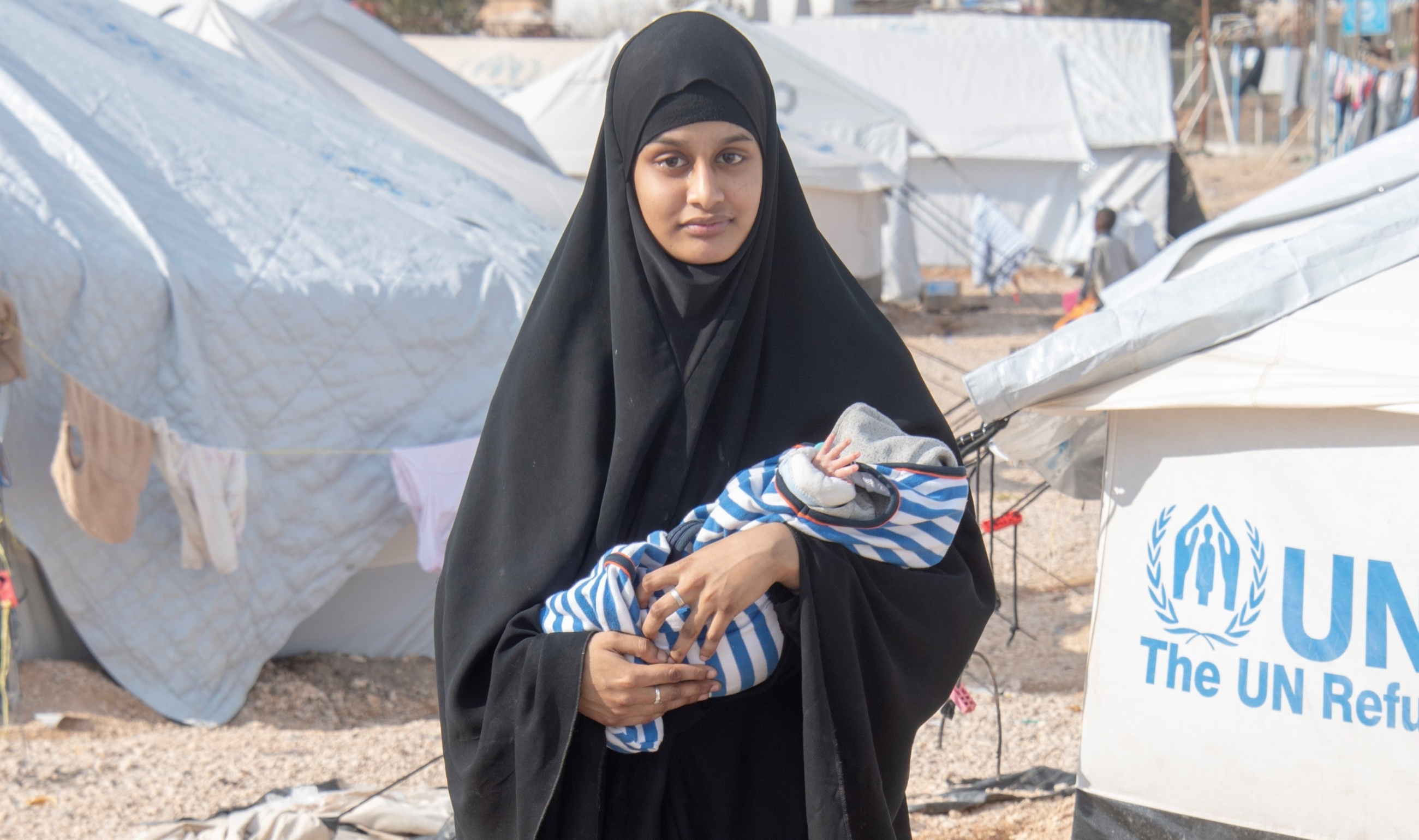
Bangladesh said it will not allow Shamima Begum, a British woman who travelled to Syria to join the Islamic State (IS) group as a teenager, to enter the South Asian country if she decided to leave Syria.
The Bangladeshi foreign ministry made its statement on Tuesday, following an appeal against the UK's decision to revoke her citizenship.
"The clear position of the government of Bangladesh is British citizen Shamima was never a Bangladeshi citizen," Bangladeshi's Ministry of Foreign Affairs said in a statement to the Dhaka Tribune.
"[Shamima Begum] doesn't have any rights in this regard and there is no scope to allow her to enter Bangladesh."
No 'fair and effective appeal'
New MEE newsletter: Jerusalem Dispatch
Sign up to get the latest insights and analysis on Israel-Palestine, alongside Turkey Unpacked and other MEE newsletters
Last week, lawyers representing Begum told a British appeals court that her citizenship should be restored because she cannot have a "fair and effective appeal" against the government's decision in her case.
Begum's lawyers were appealing a decision made by the Special Immigration Appeals Commission (SIAC), which ruled that former UK Home Secretary Sajid Javid's decision to revoke her British citizenship in February 2019 did not make her stateless.
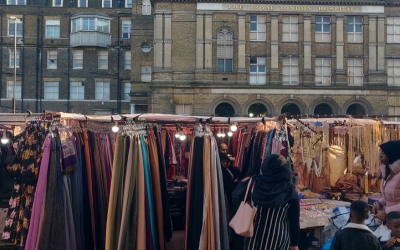
The SIAC ruled against Begum, now 20, and said she could apply for Bangladeshi citizenship, where her parents are both originally from.
It also ruled that Javid did not expose Begum to human rights abuses by leaving her in the Kurdish-controlled camp in northern Syria she is currently detained in.
During the SIAC proceedings in 2019, Begum's lawyers argued that she could "face torture" and the death penalty if tried in Iraq or taken to Bangladesh.
Her lawyers also told the court in 2019 that there was no evidence that she had ever applied for Bangladeshi citizenship or visited the country.
While the SIAC acknowledged that Begum "cannot have an effective appeal on her current circumstances", it nonetheless upheld Javid's decision.
Begum absconded to IS-held Syria in 2015, along with Kadiza Sultana and Amira Abase, two other London schoolgirls who are both believed to be dead.
Begum was stripped of her citizenship in 2019 after she was found in a detention camp for suspected IS members and their families in northern Syria by a journalist from the Times newspaper.
While held in captivity, her three-week-old son Jarrah died. Prior to Jarrah, Begum had given birth to two other children in Syria, both of whom also died.
Begum's case and the death of her son have cast scrutiny over the British government's policies towards UK nationals and their offspring stranded in Syria.
It is believed that Javid made his decision on the basis that Begum was eligible for Bangladeshi citizenship because of her parents' heritage.
'Hanged' if taken to Bangladesh
In 2018, SIAC judges ruled that the British government had wrongly determined that two British men of Bangladeshi descent were Bangladesh nationals and ordered their citizenship to be restored.
Bangladesh's nationality laws say that any individual who has parents with Bangladeshi citizenship is automatically deemed entitled to citizenship.
The law, however, states that this entitlement expires if the individual has not claimed it before the age of 21.
Earlier this year, Bangladesh Foreign Minister Abul Kalam Abdul Momen said that Begum could face capital punishment and be "hanged" if brought to his country.
Speaking to ITV News, Abdul Momen reaffirmed Dhaka's stance that Begum was not a Bangladeshi citizen.
Middle East Eye delivers independent and unrivalled coverage and analysis of the Middle East, North Africa and beyond. To learn more about republishing this content and the associated fees, please fill out this form. More about MEE can be found here.


